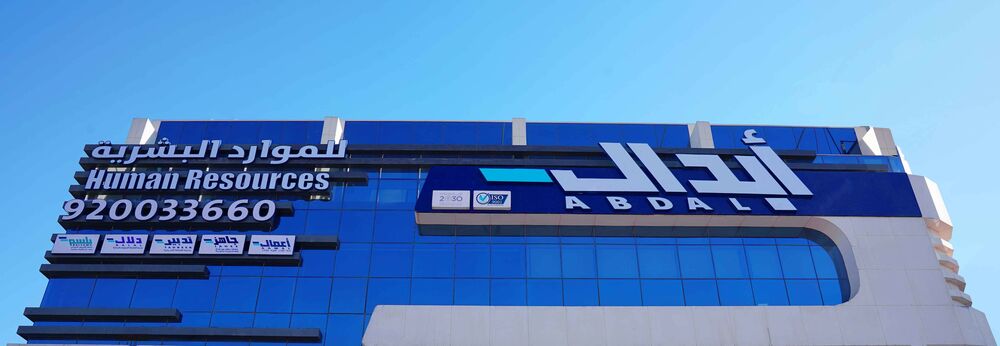The primary focus for any country when it comes to its monetary policy is to maintain its prices at a stable rate and achieve high economic growth. Some may argue that inflation can be positive for the economy of a country. This makes government officials question the measures they need to take to stop the spread of inflation. However, global inflation is creating a challenge for all central banks. This is because inflation has been a problem that faces countries all around the world with effects that spread across the country, starting from individuals, businesses, and even the economy as a whole.
The effects of global inflation spread to incomes and cause unemployment rates to increase as businesses look for ways to reduce their costs to keep up with the market. In the extreme case of inflation, a country must give up its national currency. Therefore, every country aims to prevent the consequences that come along with inflation.
INFLATION RATE IN GCC COUNTRIES
The GCC states have not been immune to this global trend, although the picture in the region is complicated and varies widely between countries. In December, inflation ranged from a high of 6.5% in Qatar, the highest it has seen since 2008, to -0.4% deflation in Bahrain. In November, the last month for which data was available for Oman and Kuwait at the time of writing, the regional average was 2.2%, when weighed using 2020 non-oil GDP. This is the most since 2018 but not high by historical standards and far below the inflationary spike in 2008 when the GCC’s annual average rate was 11%.
THE INITIATIVE OF SAUDI ARABIA
For the Kingdom of Saudi Arabia, linking its currency with the dollar of the United States has helped strengthen it and reduced inflation rates in the past years. As the international monetary fund stated that inflation is a measurement of how much the price of a specific set of products and services increases in a determined amount of time. In most cases, the period used is a year or the same month across different years. In other words, assuming you have one hundred Saudi riyals and you use them to buy five goods and/or services from the market. However, in the next year using the same amount of money you were only able to buy three. The comparison between these two years or two exact months of the year will reveal the inflation that your country is facing.
Furthermore, inflation's effect can be different depending on the goods and services that the individual consumes. Thus, governments in many instances use two ways to measure the inflation rate correctly and accurately.
1. The consumer price index (CPI) is the cost of living of an individual tracked by using a basket of items such as house rent, food, and transportation. When comparing the price of the basket in a specific time and comparing it to the first year, you will get the CPI, and any fluctuation in the CPI during a given period is consumer price inflation.
2. The other basis is the wholesale price index (WPI) which measures the change in prices of goods before they enter the retail market. The goods in the WPI consist of wholesale items such as cotton, oil, and other raw materials.
You can see in the latest inflation report for the Kingdom of Saudi Arabia issued by the Saudi Central Bank (SAMA) for the first quarter of 2022 that they use both the consumer price index and the wholesale price index to showcase the levels of inflation.
THE COST-PUSH AND DEMAND-PULL INFLATION
For the most part, inflation is a consequence of the money supply growing larger than the economy of the country. An increase in the cost of production will cause a lower supply, resulting in "cost-push" inflation. An example of cost-push inflation would be if your business requires the help of a recruitment and manpower company in KSA. An increase in the cost of recruitment will cause an increase in the prices for recruitment agencies and human resource companies which will affect your business. On the other hand, "demand-pull" inflation is a result of the demand surpassing the production capacity. In both cases, inflation can and will spread globally due to the trade of goods from one country to another.
EFFECTS ON EMPLOYEES
Moreover, global inflation has an extremely negative effect on the workers and employees. This can be sourced back to the fact that the income they receive does not increase over the years as fast as the prices do which means that the purchasing power will decrease. Therefore, they will not be able to afford as much as they did in the past. This effect is caused by the different rates by which the prices change as prices of everyday items such as food, clothes, and other traded commodities change easily. On the other hand, the income of an individual takes a long time to change because it is tied to a long-term contract that cannot be changed or adjusted at any time. Saving their money will only mean that what they want to buy is getting more expensive. Consumer activity in this case will lead to an increase in economic activity.
THE GAME CHANGER - POLICYMAKERS
Therefore, policymakers and central banks consider that about 2% of inflation is a reasonable rate. And with the hard work of the Government of Saudi Arabia and its measures to achieve the vision of 2030, it succeeded in keeping the inflation rate around 2% for most of 2022 as you can see in their inflation rate over the past years. Knowing the different factors that cause inflation, the policymakers can take the correct measures that help prevent its damage and find ways to hedge against it. In some cases, countries use a low and controlled rate of inflation as a way to post their economic growth.
As the American economist Ben Bernanke, who previously worked for the federal reserve’s said, "Low and stable inflation in many countries is an important accomplishment that will continue to bring significant benefits."
References:
https://www.imf.org/external/pubs/ft/fandd/basics/30-inflation.htm
https://www.investopedia.com/terms/i/inflation.asp
https://www.sama.gov.sa/ar-sa/EconomicReports/InflationReports/Inflation_Ar_Q1_2022.pdf
https://www.sama.gov.sa/ar-sa/EconomicReports/Pages/InflationReport.aspx
https://www.federalreserve.gov/faqs/5D58E72F066A4DBDA80BBA659C55F774.htm
https://www.vision2030.gov.sa/ar/
https://www.sama.gov.sa/ar-sa/Indices/Pages/InflationRate.aspx
https://en.wikipedia.org/wiki/Ben_Bernanke
https://www.brainyquote.com/quotes/ben_bernanke_704789?src=t_inflation








